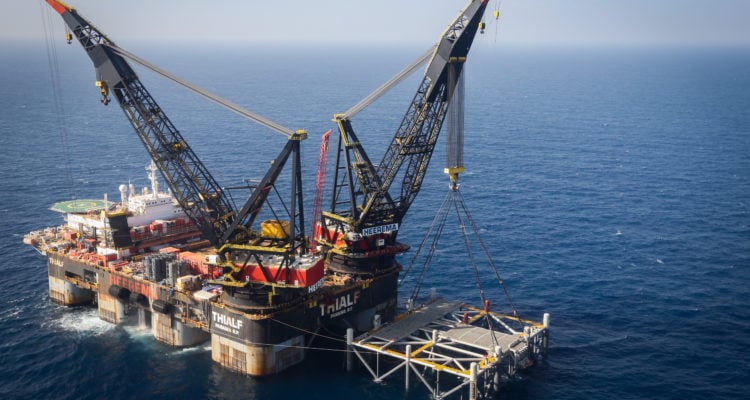Natural gas from Israel’s Leviathan field will be transferred to Jordan and then brought to Lebanon via Syria.
By Batya Jerenberg, World Israel News
Israel signed a first-of-its-kind deal this weekend to supply natural gas to a northern neighbor with which it is technically still at war and considered an ‘enemy state,’ Channel 12 reported Sunday.
The agreement, said to have been negotiated by American diplomat Amos Hochstein, is to transfer the gas from Israel’s off-shore Leviathan field to Jordan first, which will then bring it to Lebanon via Syria.
Lebanon is in dire need of fuel among other necessities as it grapples with an economic meltdown that has seen prices for basic foods, electricity and gas shoot sky high in a crisis that is deepening by the month.
Due to a lack of fuel for its power stations, the Lebanese have been suffering from power cuts for many hours a day. Hezbollah, the Iranian proxy terror organization that is a member of the government, has brought in some oil shipments from its mentor, in a bid to increase its influence in the country.
This deal is seen as a way to reduce Lebanon’s dependence on Iran, which is a clear U.S. – and Israeli – interest.
On Thursday, Lebanese Foreign Minister Abdallah Bou Habib said that the Americans will allow his country to import natural gas and electricity from both Egypt and Jordan via Syria, as an exception to the American Caesar Act. The law, which came into force in June 2020, imposes sanctions on entities conducting business with the Syrian government and its military and intelligence agencies.
The roundabout route that the natural gas would take thus officially conforms to this plan. It also allows Beirut to disguise its “enemy origins” enough to avoid anti-Israel politicians nixing the deal for the essential commodity.
Israel also gains by having another Arab country take a tentative first step towards having some kind of relations with the Jewish state.
On the other hand, there is still a simmering disagreement with Lebanon about the maritime boundary between the two countries that is being discussed in on-and-off negotiations brokered by the U.S. and UN. The focus of both sides is the oil and gas discoveries in the territorial waters, which are under dispute.
The Channel 12 report also noted a possible serious hiccup in the plan in that the necessary pipeline for the gas needs to first undergo major repairs that could take years. If so, the deal would not help the Lebanese with their immediate needs at all.





